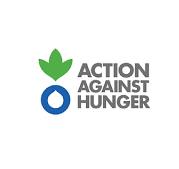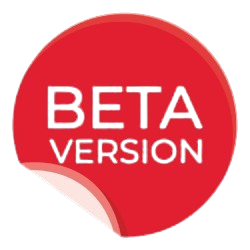
RFP - Terms of Reference for Baseline Assessment of Project Ankur
- Geographical Focus: South Zone
- Date of Issue: 09-07-2025
- Last date of submission: 20-07-2025
RFP Description
Terms of Reference for Baseline Assessment of Project Ankur
Location: 47 AWCs of Andheri, Mumbai
Action Against Hunger Foundation is an Indian not-for-profit, exclusively committed to eradicating child undernutrition, through a three-pronged approach of raising awareness, implementing direction intervention projects in vulnerable geographies and conducting research to understand the underlying causes of malnutrition and has touched over 7 lakh lives in the past five years. It is a member of a leading global network working in more than 50+ countries and supporting around 20 million people. In India, we are one of the few NGOs focusing specifically on child malnutrition with various nutrition sensitive and nutrition specific interventions. Our teams work with some of India’s most vulnerable communities, living in inaccessible geographies, detecting, and treating malnutrition in children, and empowering mothers and families on how to prevent it.
1. Introduction
India carries a huge burden of malnutrition with about 1.08 million children losing their lives even before their fifth birthday. Malnutrition affecting young children is considered one of the principal public health problems in a developing country like India. Nearly 50 percent of all deaths in children under five years of age are attributed towards undernutrition. Since 2000, India has made substantial progress, but there are still areas of concern, particularly regarding child nutrition. India is among the top three countries with most children who are wasted - 25.5 million while also holding almost a third (31%) of the world’s burden for stunting[1].India ranks 105th out of the total 121 reported countries as per the 2024 Global Hunger Index. In Maharashtra, 50 percent of the residents live in slums. Child malnutrition in high-density low-income neighborhoods, inadequate housing and infrastructure, limited access to basic services, exposure to environmental hazards being major factors combined with low and irregular income contribute to food insecurity and malnutrition. Income, poverty, unsanitary living conditions and malnutrition reinforce each other in a vicious circle. Child malnutrition contributes to an estimated 54% of all deaths in children under 5 years. 1 in every 10 children are born with low birth weight. One in every 3 mothers of under two-year- old children record a body mass index of less than 18.5 increasing the risk of low-birth weight babies. Project Sneh focuses a collaborative approach on 1000 days+ and CMAM to identify and treat cases effectively at the local level. A key focus is on preventing malnutrition through antenatal care, promoting exclusive breastfeeding, and appropriate complementary feeding practices. The initiative also strengthens health systems to provide timely referrals and follow-up for children with severe acute malnutrition. it aims to break the intergenerational cycle of malnutrition and foster healthier, more productive lives.
2. Objectives of the Baseline Study
Primary Objective:
- To establish the prevalence and incidence rates of acute malnutrition (moderate and severe) among children under five years of age within the project's target communities.
- To assess current Knowledge, Attitudes, and Practices (KAP) related to maternal nutrition, exclusive breastfeeding, complementary feeding, and hygiene among caregivers of children under five, and pregnant/lactating women.
- To map existing community-level resources, capacities, and referral pathways for the identification, treatment, and prevention of malnutrition, including the functionality of current CMAM programs if any.
- To document the socio-economic and demographic characteristics of households, including food security status, water and sanitation access, and access to healthcare services, that may influence maternal and child nutritional outcomes.
3. Study Design
- Type of Study: Mixed-method, quasi-experimental design
- Data Collection Methods:
I. Baseline Study
- Household Survey
II. Qualitative Study
- IDIs
- FGDs
- Stakeholder Interviews
Contact Information:
Mr. Pritam Bhattacharyya
Email ID: pbhattacharyya@actionagainsthunger.in
Last date of Submission Proposal: July 20, 2025
For detailed information, please check the complete version of the RFP attached below.
Job Email ID:
pbhattacharyya(at)actionagainsthunger.in
Download Attachment:
